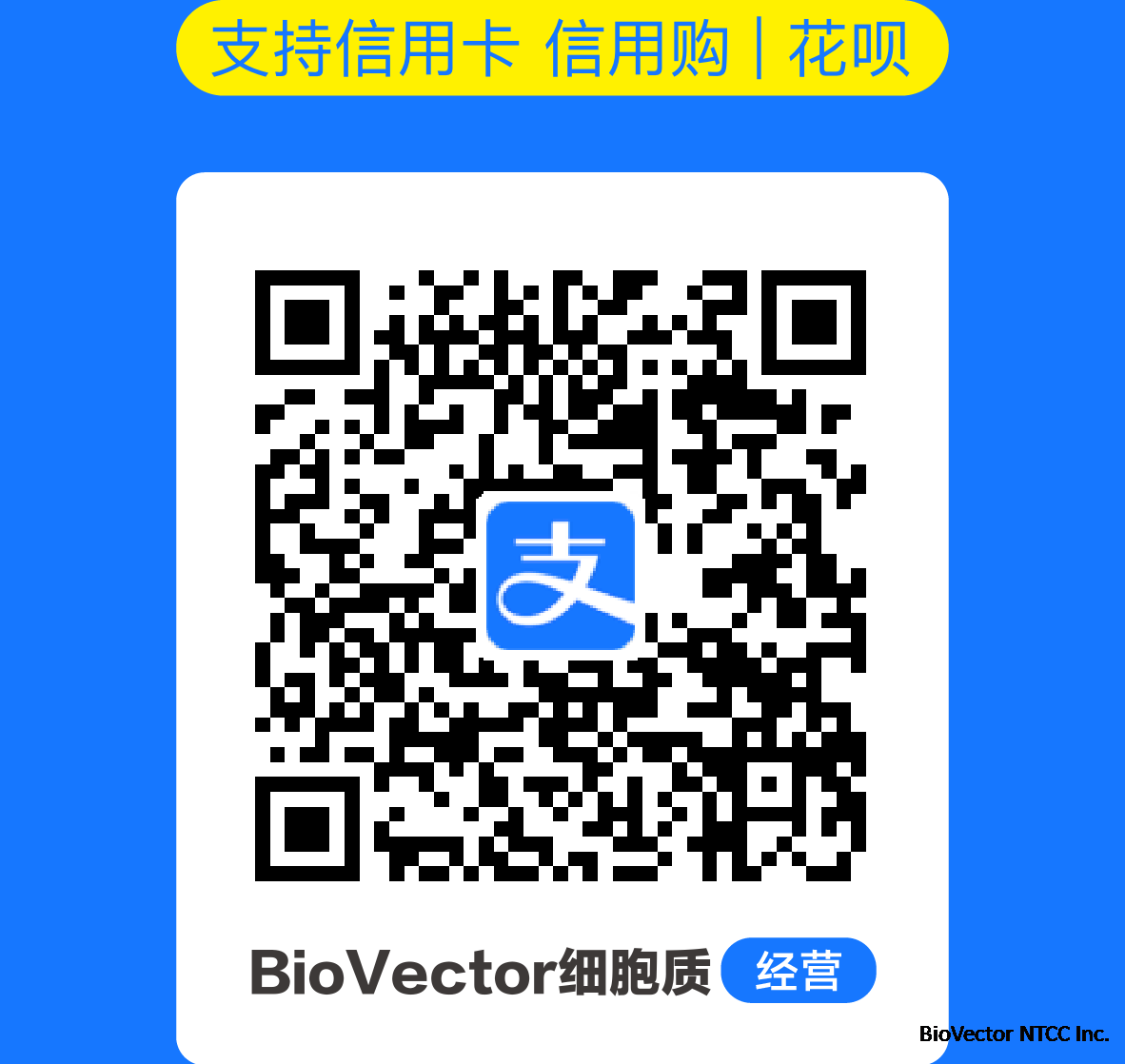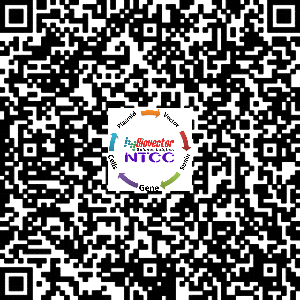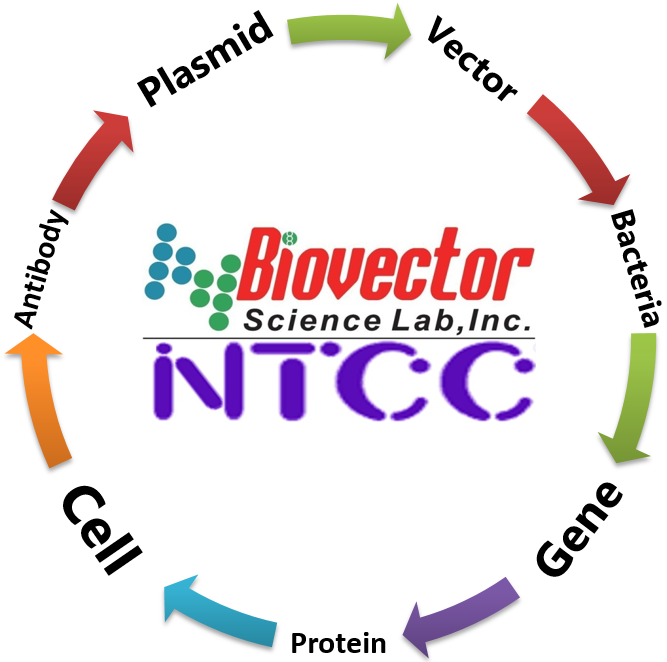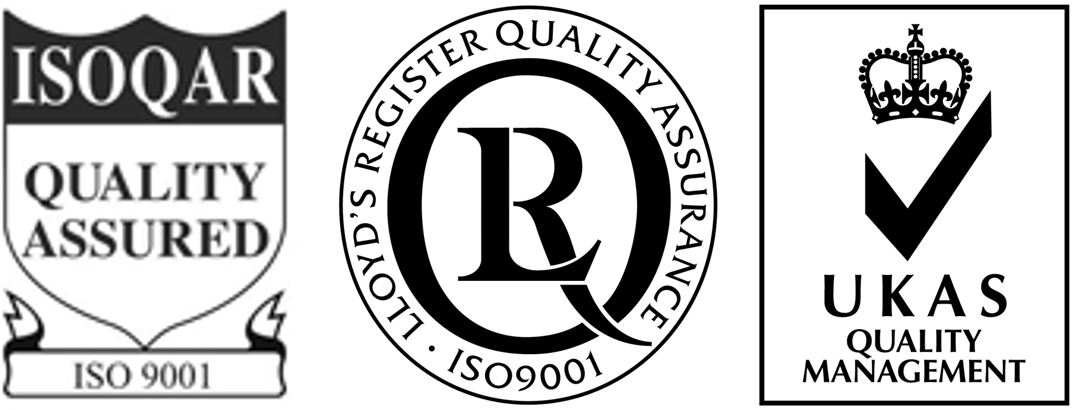Ba/F3-KIF5B-RET(K5,R12S,V804E)激酶Kinase稳定表达细胞株-BioVector NTCC保藏中心
- 价 格:¥0
- 货 号:Ba/F3-KIF5B-RET(K5,R12S,V804E)
- 产 地:北京
- BioVector NTCC典型培养物保藏中心
- 联系人:Dr.Xu, Biovector NTCC Inc.
电话:400-800-2947 工作微信:1843439339 (QQ同号)
邮件:Biovector@163.com
手机:18901268599
地址:北京
- 已注册
Ba/F3-KIF5B-RET(K5,R12S,V804E)激酶Kinase稳定表达细胞株-BioVector NTCC保藏中心
I. Introduction
Cell Line Name:
BA/F3_KIF5B-RET (V804E)
Gene Synonyms:
kinesin family member 5B ,HEL-S-61, KINH, KNS, KNS1, UKHC;ret proto-oncogene,CDHF12, CDHR16, HSCR1, MEN2A, MEN2B, MTC1, PTC-ELE1, RET
Host Cell:
Ba/F3
Stability: 16 passages
Application:
Anti-proliferation assay and PD assay
Freeze Medium:
90% FBS+10% DMSO
Complete Culture Medium:
RPMI-1640+10%FBS+1 ug/ml puromycin
Mycoplasma Status:
Negative
II.Background
Chromosomal rearrangements involving the gene that encodes the RET tyrosine kinase are known oncogenic drivers in 1% to 2% of patients with non–small cell lung cancer (NSCLC). These RET rearrangements occur with characteristic partners, most commonly KIF5B, but also CCDC6, NCOA, TRIM33, CUX1, KIAA1217, FRMD4A, and KIAA1468. They are typically identified in young patients with adenocarcinoma histology and minimal smoking history. Therapeutic targeting of RET-fusion–driven NSCLCs has taken the form of treatment with broad-spectrum tyrosine kinase inhibitors with anti-RET activity, such as cabozantinib (Cabometyx; Cometriq), vandetanib (Caprelsa), lenvatinib (Lenvima), RXDX-105, and sunitinib (Sutent). Cabozantinib and vandetanib have been the most heavily studied multi-kinase inhibitors (MKIs), with response rates of 20% to 50% in largely pretreated patients with RET-rearranged NSCLC. Sunitinib has been used in fewer patients to date with initial results demonstrating a 22% response rate. RXDX-105 has exhibited uniquely impressive response rates (75%) in patients with non–KIF5B-RET-fusion NSCLC, compared with 0% response in patients with KIF5B-RET-fusion–positive NSCLC. BLU-667 has demonstrated an objective response rate of 50% in patients with RET-fusion positive NSCLC, and LOXO-292 reported a 74% ORR in patients with RET-fusion positive NSCLC. Notably, RXDX-105, BLU- 667, and LOXO-292 have all demonstrated some central nervous system activity in these early phase trials. Future directions of RET inhibition in patients with RET-rearranged NSCLC include additional clinical validation of the next generation RET-selective inhibitors RXDX-105, BLU-667, and LOXO-292 and comparing multikinase inhibitors with RET-selective inhibitors to determine the optimal sequencing of RET-targeted therapies.
III. Representative Data
1. Anti-proliferation assay
Figure 1. Anti-proliferation assay of one reference compounds on the BA/F3_KIF5B-RET (V804E) Stable Cell Line
IV. Thawing
Thawing: Protocol
1. Remove the vial from liquid nitrogen tank and thaw cells quickly in a 37°C water-bath.
2. Just before the cells are completely thawed, decontaminate the outside of the vial with 70% ethanol and transfer the cells to a 15 ml centrifuge tube containing 9 ml of complete growth medium.
3. Pellet cells by centrifugation at 200 x g force for 5 min, and discard the medium.
4. Resuspend the cells in complete growth medium.
5. Add 10 ml of the cell suspension in a 10 cm dish.
6. Add promycin to a concentration of 1 μg/ml the following day.
Kinase细胞株
现代新药研发的关键首先是寻找,确定和制备药物作用靶点。在500多个已发现的药物靶点里中,GPCR,Ion Channel,Kinase使用的最为广泛。
激酶(kinase)是一类从高能供体分子(如ATP)转移磷酸基团到特定靶分子(底物)的酶;这一过程谓之磷酸化。许多肿瘤的发生是由某些与生长相关的“激酶”发生突变导致异常活化引起的,因而针对这些突变激酶的抑制剂能够有效抑制这些激酶的活性,从而达到抑制癌细胞增长的目的。
BioVector NTCC质粒载体菌种细胞蛋白抗体基因保藏中心
电话:+86-010-53513060
网址:www.biovector.net
I. Introduction
Cell Line Name:
BA/F3_KIF5B-RET (V804E)
Gene Synonyms:
kinesin family member 5B ,HEL-S-61, KINH, KNS, KNS1, UKHC;ret proto-oncogene,CDHF12, CDHR16, HSCR1, MEN2A, MEN2B, MTC1, PTC-ELE1, RET
Host Cell:
Ba/F3
Stability: 16 passages
Application:
Anti-proliferation assay and PD assay
Freeze Medium:
90% FBS+10% DMSO
Complete Culture Medium:
RPMI-1640+10%FBS+1 ug/ml puromycin
Mycoplasma Status:
Negative
II.Background
Chromosomal rearrangements involving the gene that encodes the RET tyrosine kinase are known oncogenic drivers in 1% to 2% of patients with non–small cell lung cancer (NSCLC). These RET rearrangements occur with characteristic partners, most commonly KIF5B, but also CCDC6, NCOA, TRIM33, CUX1, KIAA1217, FRMD4A, and KIAA1468. They are typically identified in young patients with adenocarcinoma histology and minimal smoking history. Therapeutic targeting of RET-fusion–driven NSCLCs has taken the form of treatment with broad-spectrum tyrosine kinase inhibitors with anti-RET activity, such as cabozantinib (Cabometyx; Cometriq), vandetanib (Caprelsa), lenvatinib (Lenvima), RXDX-105, and sunitinib (Sutent). Cabozantinib and vandetanib have been the most heavily studied multi-kinase inhibitors (MKIs), with response rates of 20% to 50% in largely pretreated patients with RET-rearranged NSCLC. Sunitinib has been used in fewer patients to date with initial results demonstrating a 22% response rate. RXDX-105 has exhibited uniquely impressive response rates (75%) in patients with non–KIF5B-RET-fusion NSCLC, compared with 0% response in patients with KIF5B-RET-fusion–positive NSCLC. BLU-667 has demonstrated an objective response rate of 50% in patients with RET-fusion positive NSCLC, and LOXO-292 reported a 74% ORR in patients with RET-fusion positive NSCLC. Notably, RXDX-105, BLU- 667, and LOXO-292 have all demonstrated some central nervous system activity in these early phase trials. Future directions of RET inhibition in patients with RET-rearranged NSCLC include additional clinical validation of the next generation RET-selective inhibitors RXDX-105, BLU-667, and LOXO-292 and comparing multikinase inhibitors with RET-selective inhibitors to determine the optimal sequencing of RET-targeted therapies.
III. Representative Data
1. Anti-proliferation assay
Figure 1. Anti-proliferation assay of one reference compounds on the BA/F3_KIF5B-RET (V804E) Stable Cell Line
IV. Thawing
Thawing: Protocol
1. Remove the vial from liquid nitrogen tank and thaw cells quickly in a 37°C water-bath.
2. Just before the cells are completely thawed, decontaminate the outside of the vial with 70% ethanol and transfer the cells to a 15 ml centrifuge tube containing 9 ml of complete growth medium.
3. Pellet cells by centrifugation at 200 x g force for 5 min, and discard the medium.
4. Resuspend the cells in complete growth medium.
5. Add 10 ml of the cell suspension in a 10 cm dish.
6. Add promycin to a concentration of 1 μg/ml the following day.
Kinase细胞株
现代新药研发的关键首先是寻找,确定和制备药物作用靶点。在500多个已发现的药物靶点里中,GPCR,Ion Channel,Kinase使用的最为广泛。
激酶(kinase)是一类从高能供体分子(如ATP)转移磷酸基团到特定靶分子(底物)的酶;这一过程谓之磷酸化。许多肿瘤的发生是由某些与生长相关的“激酶”发生突变导致异常活化引起的,因而针对这些突变激酶的抑制剂能够有效抑制这些激酶的活性,从而达到抑制癌细胞增长的目的。
BioVector NTCC质粒载体菌种细胞蛋白抗体基因保藏中心
电话:+86-010-53513060
网址:www.biovector.net
- 公告/新闻




